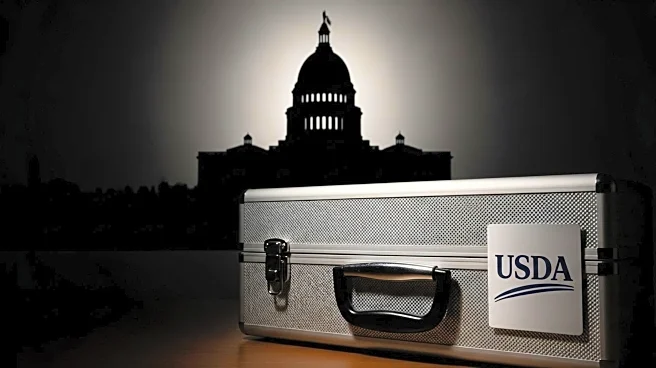What is the story about?
What's Happening?
The Trump administration's plans to roll out economic aid for farmers have been delayed due to the ongoing government shutdown. The Office of Management and Budget has prepared between $12 billion and $13 billion from an internal USDA account to assist farmers affected by tariffs and other economic challenges. However, the timeline for releasing these funds has been postponed as USDA political appointees have been furloughed. The administration is considering using tariff revenue and the USDA's Commodity Credit Corporation fund to alleviate financial stress on farmers. This delay comes amidst ongoing negotiations to reopen the government.
Why It's Important?
The delay in farmer aid is significant as it impacts the agricultural sector, which has been struggling with high input costs and trade war losses. Farmers are facing financial stress, and the aid package is crucial to provide relief. The shutdown has exacerbated these challenges, affecting the timely distribution of funds. The agricultural industry, a vital part of the U.S. economy, relies on government support to navigate economic headwinds. The delay could lead to increased pressure on lawmakers to resolve the shutdown and ensure the aid reaches farmers promptly.
What's Next?
The administration is expected to announce support for farmers once the shutdown is resolved. There is potential for multiple rounds of aid, with initial estimates suggesting up to $15 billion could be allocated. The aid would target soybean farmers affected by the trade dispute with China and other commodity farmers. The timeline for these announcements remains uncertain, but there is precedent for swift congressional action to support farmers during economic challenges.
Beyond the Headlines
The delay in aid highlights the broader implications of government shutdowns on critical sectors like agriculture. It underscores the need for bipartisan cooperation to ensure essential services and support mechanisms remain operational during political impasses. The situation also raises questions about the long-term sustainability of relying on government aid to mitigate trade-related economic impacts.
















